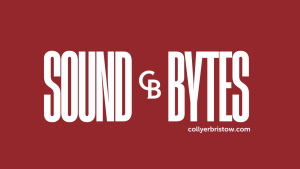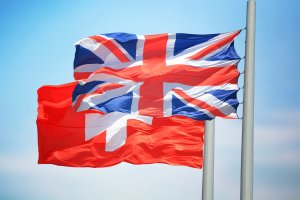- Banking & financial disputes
- Commercial disputes

Longer Reads
Coronavirus – Can you CLAIM UNDER YOUR BUSINESS INTERRUPTION INSURANCE?
A guide for businesses claiming their losses from the Coronavirus outbreak
4 minute read
Published 30 March 2020
Key information
- Specialisms
- Dispute Resolution
Claims under policies are often complex. They all have particular conditions of cover and exclusions plus extensive definition sections that impact on the apparent extent of the cover. Additionally, the combination of a previously unknown disease plus the extreme steps that the Government has needed to take to combat it, mean that this is a unique situation, unanticipated when most policies were issued.
The background to the COVID-19 outbreak is well known. The virus was first reported in China’s Hubei Province on 31 December 2019. On 30 January 2020 the World Health Organisation declared a Public Health Emergency of International Concern. It was not, however, classified by the UK Government as a notifiable disease in England until 5 March 2020. This date may be important, in some cases, as the start date for the claim. In Scotland it was classified at an earlier date as a notifiable disease – on 22 February 2020 – and in Northern Ireland on 29 February 2020 but this article only relates to the position in England and to English law.
A notifiable disease is one listed under the Health Protection Regulations 2010.
What does business interruption insurance cover?
Putting it broadly, business interruption insurance covers you for loss of income or loss of gross profit during periods when you cannot carry out business as usual due to an unexpected event beyond your control. It aims to put your business back into the same trading position as it was before the event occurred. There is likely, however, to be a time limit for which losses can be claimed. It could be between 1 to 3 years, starting from the date that the cause of the claim arose. Typically, there will also be financial limits to the total claim that can be made.
Which insurance policies provide business interruption cover?
You may have a specific business interruption policy, or you may have cover contained in a more general business insurance policy or the cover might be in a policy that insures the property from which your business operates.
Business interruption policies that cover all notifiable diseases
If you are very fortunate, you will have wide business interruption insurance cover that applies to “any” notifiable disease from the time that it became listed in the Health Protection Regulations 2010. However, such policies are relatively rare and if this cover does exist, you need to look very carefully at the precise wording of the policy. The cover would only come into effect from 5 March 2020 for COVID – 19 and so any losses you have incurred prior to this date would not be recoverable from the insurer.
Policies sometimes have a condition that claims can only be made from the time that the notifiable disease is present in the “vicinity of your business” but this condition should be easier to satisfy now that COVID- 19 has become so widespread.
Other policies may require that the disease must occur on the property covered by the policy.
Some policies may provide cover for “infectious diseases” (as distinct from notifiable diseases) but the particular wording has to be examined to see if this applies to COVID-19.
Business interruption policies that only cover diseases that are specifically listed in the policy
More usually, business interruption policies do not provide cover against “any notifiable disease” that may occur but instead list the specific diseases that are covered. This is because insurers consider that they have to be able to assess a risk before they are prepared to cover it.
The list will not include COVID-19 if at the time you obtained the policy, it was unknown. If, on the other hand, you obtained the policy after it was known, then it is still unlikely to be included unless the insurers had been prepared to cover it (at a suitably increased premium).
So, if your policy lists the specified diseases that are covered and COVID-19 is not mentioned in the list, you are unlikely to be able to claim.
If, however, in addition to the list of specified diseases, your policy states that cover also applies to any variant of the listed diseases then there might be room for argument. There have been some suggestions that COVID-19 is a variant of SARS or atypical pneumonia which was itself a form of coronavirus. Extensive investigation into the disease is taking place worldwide and the outcome is awaited.
What business interruption cover does property insurance provide?
Property insurance may have business interruption cover that applies only if there has been damage to the property. There may need to be physical damage to the property, for instance damage by fire or flood that has caused the business interruption.
Where the policy requires a “direct physical loss” to the property and it has become contaminated and uninhabitable, It could be contended that such a loss has occurred but this is currently an uncertain legal argument although it is one that will be developed.
Can you claim losses that are caused by your suppliers or customers?
Some policies have business interruption cover for losses that are the result of a problem at your supplier or even at your customer. This is called “contingent business interruption cover”. However, this cover is often property related. So it might apply, for instance, where a supplier is unable to make supplies to you because of damage at its property caused by flood or fire.
On the other hand, if you have contingent business interruption cover that is triggered by COVID-19 which has led to the problems with the suppliers or customers, you may be able to make a claim.
Was COVID- 19 the cause of your losses?
Insurers may seek various legal grounds with which to resist claims and one is “causation”. Can you show that the business interruption occurred for a reason that was sufficiently directly related to COVID – 19? For instance, insurers may argue that you have a stronger case where you closed down because an employee had the virus on your premises than if you did so for the general protection of your employees because of government advice. Obviously a business is in a stronger position to make a claim if it closed down where it had no alternative, for instance, because of an order from a public authority that legally compelled it to close.
Proving your losses
The onus will be on you to prove your losses and so you need to be prepared to provide past accounts and forecasts and much more information. You will find that insurers take a conservative approach to accepting your forecasts. .
Reducing your losses
As with all insurance cover, you are under a legal duty to reduce your losses as far as you reasonably can. What is “reasonable” of course depends upon the circumstances. Examples are that if you can reduce your losses by your employees working at home, or if you are able to reduce expenses or able to use different suppliers, then you must do so. Insurers will of course, need to be satisfied about this before they will make payments.
Notifying your claim to the insurers
A usual word of warning. All insurance policies contain time limits for notification of claims to the insurers. So if you think you have a claim, you should notify it to the insurer immediately. You still have to do this even though the insurer may be aware that you have had to close your business because of COVID-19, for instance because you are a restaurant and the Government has advised that all restaurants should close.
The contents of the notification must be prepared with care so that it shows that your claim meets the cover you have and meets the requirements and limits of the policy.
When does the insurer have to pay?
Under section13A of the Insurance Act 2015 an insurer is required to pay within a “reasonable” time, unless the policy says otherwise.
This article can only provide general guidance about claims under business interruption insurance arising from the pandemic, coronavirus (COVID-19), and it is particularly important that it is not relied upon in place of specific legal advice. That is because the wording of policies varies enormously depending on the insurer, the type of cover, the cover you may have negotiated and individual circumstances. It is crucial to focus on the exact wording of the policy and the policy schedule.
Related content
Longer Reads
Coronavirus – Can you CLAIM UNDER YOUR BUSINESS INTERRUPTION INSURANCE?
A guide for businesses claiming their losses from the Coronavirus outbreak
Published 30 March 2020
Associated sectors / services
Authors
Claims under policies are often complex. They all have particular conditions of cover and exclusions plus extensive definition sections that impact on the apparent extent of the cover. Additionally, the combination of a previously unknown disease plus the extreme steps that the Government has needed to take to combat it, mean that this is a unique situation, unanticipated when most policies were issued.
The background to the COVID-19 outbreak is well known. The virus was first reported in China’s Hubei Province on 31 December 2019. On 30 January 2020 the World Health Organisation declared a Public Health Emergency of International Concern. It was not, however, classified by the UK Government as a notifiable disease in England until 5 March 2020. This date may be important, in some cases, as the start date for the claim. In Scotland it was classified at an earlier date as a notifiable disease – on 22 February 2020 – and in Northern Ireland on 29 February 2020 but this article only relates to the position in England and to English law.
A notifiable disease is one listed under the Health Protection Regulations 2010.
What does business interruption insurance cover?
Putting it broadly, business interruption insurance covers you for loss of income or loss of gross profit during periods when you cannot carry out business as usual due to an unexpected event beyond your control. It aims to put your business back into the same trading position as it was before the event occurred. There is likely, however, to be a time limit for which losses can be claimed. It could be between 1 to 3 years, starting from the date that the cause of the claim arose. Typically, there will also be financial limits to the total claim that can be made.
Which insurance policies provide business interruption cover?
You may have a specific business interruption policy, or you may have cover contained in a more general business insurance policy or the cover might be in a policy that insures the property from which your business operates.
Business interruption policies that cover all notifiable diseases
If you are very fortunate, you will have wide business interruption insurance cover that applies to “any” notifiable disease from the time that it became listed in the Health Protection Regulations 2010. However, such policies are relatively rare and if this cover does exist, you need to look very carefully at the precise wording of the policy. The cover would only come into effect from 5 March 2020 for COVID – 19 and so any losses you have incurred prior to this date would not be recoverable from the insurer.
Policies sometimes have a condition that claims can only be made from the time that the notifiable disease is present in the “vicinity of your business” but this condition should be easier to satisfy now that COVID- 19 has become so widespread.
Other policies may require that the disease must occur on the property covered by the policy.
Some policies may provide cover for “infectious diseases” (as distinct from notifiable diseases) but the particular wording has to be examined to see if this applies to COVID-19.
Business interruption policies that only cover diseases that are specifically listed in the policy
More usually, business interruption policies do not provide cover against “any notifiable disease” that may occur but instead list the specific diseases that are covered. This is because insurers consider that they have to be able to assess a risk before they are prepared to cover it.
The list will not include COVID-19 if at the time you obtained the policy, it was unknown. If, on the other hand, you obtained the policy after it was known, then it is still unlikely to be included unless the insurers had been prepared to cover it (at a suitably increased premium).
So, if your policy lists the specified diseases that are covered and COVID-19 is not mentioned in the list, you are unlikely to be able to claim.
If, however, in addition to the list of specified diseases, your policy states that cover also applies to any variant of the listed diseases then there might be room for argument. There have been some suggestions that COVID-19 is a variant of SARS or atypical pneumonia which was itself a form of coronavirus. Extensive investigation into the disease is taking place worldwide and the outcome is awaited.
What business interruption cover does property insurance provide?
Property insurance may have business interruption cover that applies only if there has been damage to the property. There may need to be physical damage to the property, for instance damage by fire or flood that has caused the business interruption.
Where the policy requires a “direct physical loss” to the property and it has become contaminated and uninhabitable, It could be contended that such a loss has occurred but this is currently an uncertain legal argument although it is one that will be developed.
Can you claim losses that are caused by your suppliers or customers?
Some policies have business interruption cover for losses that are the result of a problem at your supplier or even at your customer. This is called “contingent business interruption cover”. However, this cover is often property related. So it might apply, for instance, where a supplier is unable to make supplies to you because of damage at its property caused by flood or fire.
On the other hand, if you have contingent business interruption cover that is triggered by COVID-19 which has led to the problems with the suppliers or customers, you may be able to make a claim.
Was COVID- 19 the cause of your losses?
Insurers may seek various legal grounds with which to resist claims and one is “causation”. Can you show that the business interruption occurred for a reason that was sufficiently directly related to COVID – 19? For instance, insurers may argue that you have a stronger case where you closed down because an employee had the virus on your premises than if you did so for the general protection of your employees because of government advice. Obviously a business is in a stronger position to make a claim if it closed down where it had no alternative, for instance, because of an order from a public authority that legally compelled it to close.
Proving your losses
The onus will be on you to prove your losses and so you need to be prepared to provide past accounts and forecasts and much more information. You will find that insurers take a conservative approach to accepting your forecasts. .
Reducing your losses
As with all insurance cover, you are under a legal duty to reduce your losses as far as you reasonably can. What is “reasonable” of course depends upon the circumstances. Examples are that if you can reduce your losses by your employees working at home, or if you are able to reduce expenses or able to use different suppliers, then you must do so. Insurers will of course, need to be satisfied about this before they will make payments.
Notifying your claim to the insurers
A usual word of warning. All insurance policies contain time limits for notification of claims to the insurers. So if you think you have a claim, you should notify it to the insurer immediately. You still have to do this even though the insurer may be aware that you have had to close your business because of COVID-19, for instance because you are a restaurant and the Government has advised that all restaurants should close.
The contents of the notification must be prepared with care so that it shows that your claim meets the cover you have and meets the requirements and limits of the policy.
When does the insurer have to pay?
Under section13A of the Insurance Act 2015 an insurer is required to pay within a “reasonable” time, unless the policy says otherwise.
This article can only provide general guidance about claims under business interruption insurance arising from the pandemic, coronavirus (COVID-19), and it is particularly important that it is not relied upon in place of specific legal advice. That is because the wording of policies varies enormously depending on the insurer, the type of cover, the cover you may have negotiated and individual circumstances. It is crucial to focus on the exact wording of the policy and the policy schedule.
Associated sectors / services
- Banking & financial disputes
- Commercial disputes
Authors
Need some more information? Make an enquiry below.
Subscribe
Please add your details and your areas of interest below
Article contributor
Stephen
RosenPartner
Specialising in Banking & financial disputes, Commercial arbitration, Commercial disputes, Financial Services and Manufacturing
Enjoy reading our articles? why not subscribe to notifications so you’ll never miss one?
Subscribe to our articlesMessage us on WhatsApp (calling not available)
Please note that Collyer Bristow provides this service during office hours for general information and enquiries only and that no legal or other professional advice will be provided over the WhatsApp platform. Please also note that if you choose to use this platform your personal data is likely to be processed outside the UK and EEA, including in the US. Appropriate legal or other professional opinion should be taken before taking or omitting to take any action in respect of any specific problem. Collyer Bristow LLP accepts no liability for any loss or damage which may arise from reliance on information provided. All information will be deleted immediately upon completion of a conversation.
Close












































































